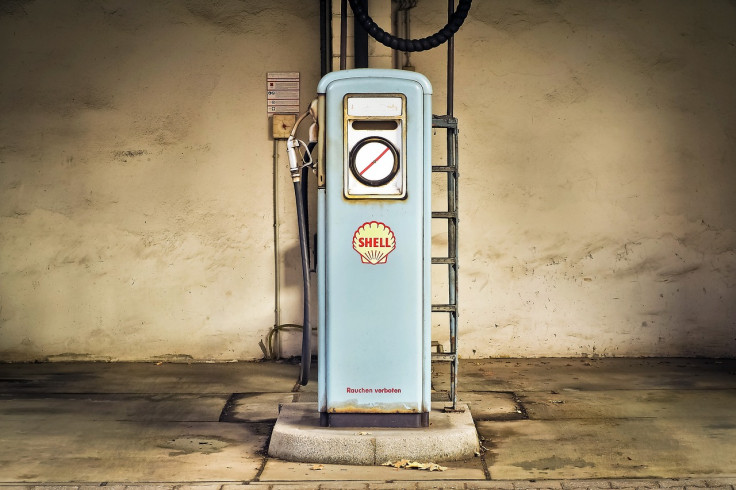Accelerating the Fight for Equality: How Robotic Refueling Can Enhance Accessibility for the Disabled
Depending on where you live, and what physical limitations you may have, your access to toilets, streets, and stores that accommodate wheelchair users and other disabled individuals varies greatly. In some cities, there are practically no facilities that take people with disabilities into account. On the other hand, some metropolises with a focus on accessibility have almost standardised designs that consider the needs of the disabled. Jonas Thor Olsen, a co-founder of the Danish company Autofuel, brings attention to the dire need for petrol stations to adopt robotic refueling technology that can cater to disabled individuals and seniors while improving the overall customer experience.

Since the beginning of civilisation, those with physical limitations have lived in a world that rarely considers their needs. While this is changing in countries globally, the majority of infrastructure still needs to change. Many able-bodied people may deny this as accessible toilets, wheelchair ramps, and other modified designs have become the norm. However, many activists, lawmakers, and nonprofits argue that significant gaps are preventing the disabled from achieving a 'full circle' of mobility.
Jonas Thor Olsen echoes this sentiment as the co-founder of Autofuel, a company that offers fully automated, robotic refueling systems. Throughout his experience developing the company's system, Jonas has learned about the pitfalls of mobility for people with disabilities. Not only are many facilities out of reach, or impossible for the disabled to use independently, the steps being made to improve their lives provide little value. In Europe and other parts of the world, public subsidies as well as private donations are used to help disabled people access accessible transportation. Jonas says that these expenditures are worthwhile, as they provide people with disabilities the chance to gain more agency over their lives. However, Jonas notes that public facilities like petrol stations don't accommodate these upgrades.
"Many generous programs help people with disabilities access or purchase a modified vehicle that they can drive comfortably," says Jonas. "Yet, petrol stations rarely have the equipment necessary to allow them to refuel their cars without causing them embarrassment or a hassle. Society needs to consider how robotic refueling can help this group access critical services for their daily lives as well as how it can accommodate seniors or any other petrol customer to get fuel faster and more efficiently."
Autofuel's team intimately understands the struggles people with physical limitations face when visiting the petrol station. The company has had several disabled customers who have achieved a higher quality of life after receiving automated refueling solutions. Markus Pitkänen, a wheelchair user in Finland was one individual whose life was made easier by this. Markus expressed his gratitude to Jonas for the installation of an automated fueling system in his town. The machine enabled Markus to refuel his car simply with less stress. His story as well as another woman with a muscular disease who benefited from Autofuel adapters shows the potential of this technology on a wide scale. If implemented at petrol stations globally, millions of people would live with more confidence and comfort. These changes would also reduce the stigma against people with disabilities by enabling them to live equally alongside their able-bodied peers.
Autofuel's proprietary robotic refueling systems pave the way for people with disabilities and other marginalised groups to access mobility services. The company's technology allows drivers to stay in their cars while an advanced robot scans their number plate, retrieving information about the car and fuel type. This data is linked to user profiles containing payment information, enabling a seamless customer experience from fueling to billing.
Autofuel's proprietary robotic refueling system in operation
Autofuel systems accommodate all fuel types and vehicles. The company utilises unique adapters to enable a robotic arm to dispense fuel and safely close the opening. This innovative technology has allowed Autofuel to install systems in multiple countries, greatly improving a disabled customer's experience and also enhancing traffic flow at petrol stations.
Jonas is proud of the technology Autofuel provides, as it serves people with disabilities, seniors, and able-bodied people who want a more convenient refueling experience in all weather conditions. The co-founder also believes that Autofuel systems will normalise accessible infrastructure for people with disabilities, creating a circle of mobility that serves all customers with efficiency, safety, and convenience.
While refueling is an overlooked step of many able-bodied peoples' routines, it is a major hurdle for those with physical limitations. Due to conditions that impair their daily functioning, these individuals are forced to rely on loved ones or simply put up with the world's exclusive design. As the world continues to implement technological innovations and support the development of all people, society needs to reexamine how fragmented accessible infrastructure really is. By taking an honest look at the experiences of disabled people, it becomes abundantly clear that this demographic deserves more support, whether it be through robotic refueling systems or inclusive societal cultures.
© Copyright IBTimes 2025. All rights reserved.





















